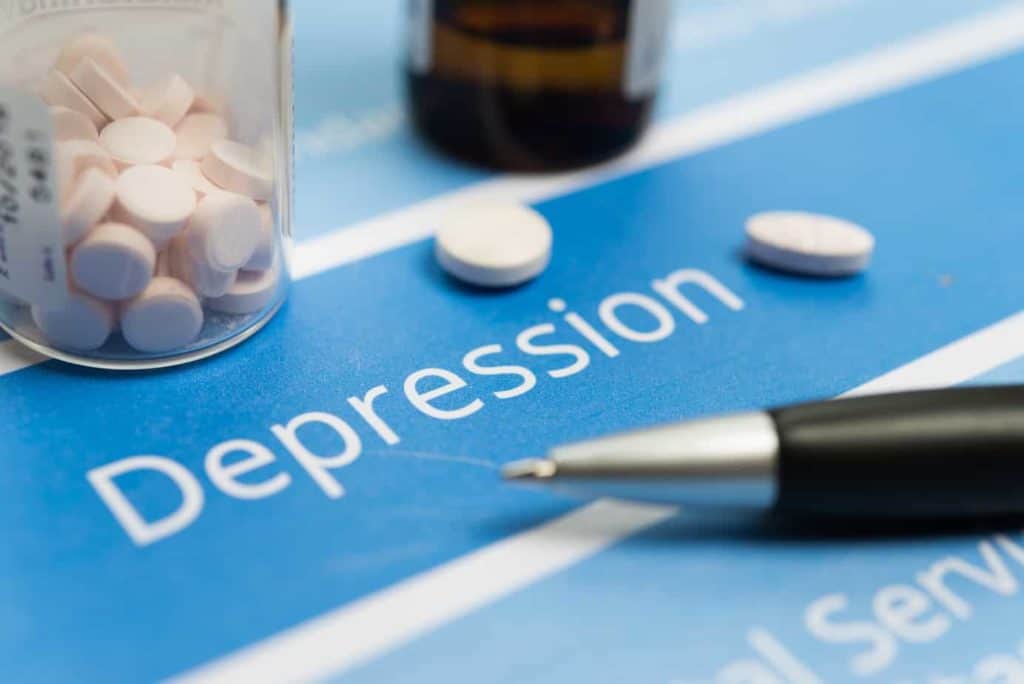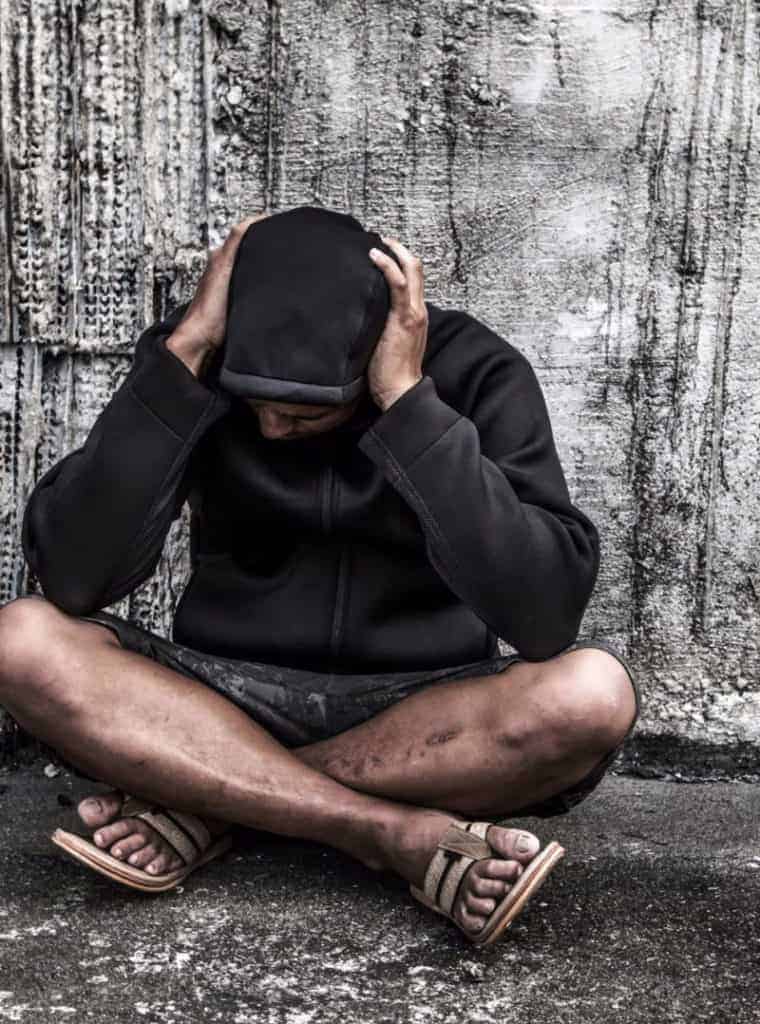What is Dual Diagnosis?
A dual diagnosis occurs when a person suffers from both an alcohol and or drug addiction and another form of mental illness such as depression, bipolar disorder, anxiety disorders, etc. For example, a dual diagnosis can consist of treating someone who has an addiction to narcotics and who also struggles with schizophrenia or obsessive-compulsive disorder.
8.2 million Americans suffer from both addiction and mental health illnesses. Dual diagnosis statistics show this is more widespread than earlier understood and that it can be particularly damaging. For example, approximately 50% of adults with dual diagnoses are responsible for the majority of violent crimes in America Each year over 11 million people are arrested due to dual diagnosis-related behavior.
The We Level Up dual diagnosis treatment centers provide comprehensive care consisting of both primary addiction disorder and secondary behavioral disorder treatment.


Get Your Life Back
Find Hope & Recovery. Get Safe Comfortable Detox, Addiction Rehab & Dual Diagnosis High-Quality Care.
Hotline(844) 597-1011What are Co-Occurring Disorders?
When a person is diagnosed with both a mental illness and a substance use disorder, they are said to have co-occurring disorders. Though the disorders can exist separately from one another, when they coexist in the same person, they usually cause the symptoms of both disorders to be amplified. It is common for a person with co-occurring disorders to have more severe symptoms than a person with only one of the disorders.
Co-occurring disorders treatments are defined by the dual diagnosis of a mental health disorder and a substance use disorder in the same person. These diagnoses can be made at the same time, or they can be made one after the other, but the two disorders occur simultaneously in the same person.
Difference Between Dual Diagnosis and Co-Occurring Disorders
The key difference between dual diagnosis and co-occurring disorders is the nature of the diagnosis. For dual diagnosis, while the elements discovered could be caused by substance abuse, they are two (or more) completely separate diagnoses. Contrast that with co-occurring disorders, where mental illness led an individual to self-medicate with drugs and alcohol, or the devastating effects and brain damage that comes with addiction led to the development of a mental illness. Mental health disorders and addiction are inexorably linked and must be treated together.
Dual Diagnosis vs Co-Occurring Disorders
Sometimes, a co-occurring disorder develops because of brain changes that happen when a person uses alcohol or drugs. In other cases, the comorbid condition exists before the substance use disorder develops.
Mental illness can cause symptoms that affect everyday life, and some people turn to drugs or alcohol to ease these symptoms. Self-medicating may temporarily make the person feel better, but it can also lead to substance abuse disorders as the person becomes unable to cope with mental health symptoms in healthier ways.
Get Help. Get Better. Get Your Life Back.
Searching for Accredited Drug and Alcohol Rehab Centers Near You?
Even if you have failed previously and relapsed, or are in the middle of a difficult crisis, we stand ready to support you. Our trusted behavioral health specialists will not give up on you. When you feel ready or just want someone to speak to about therapy alternatives to change your life call us. Even if we cannot assist you, we will lead you to wherever you can get support. There is no obligation. Call our hotline today.
(844) 597-1011What Happens During Treatment for Co-Occurring Disorders?
In Recent Years, Researchers have Found that Integrated therapy is the best method for treating people with co-occurring disorders. Research gathered by the Substance Abuse and Mental Health Services Administration indicates that combining psychiatric and addiction treatment techniques can decrease relapses and reduce suicide attempts in rehab graduates, as well as promote long-term abstinence.
Several Factors Make it Crucial to Treat Co-Occurring Mental Health Disorders and Addictive Disorders Together:

- An Integrated Recovery Plan aims to reduce the negative side effects of mental health disorders, including problems paying attention, feeling depressed, and disinclination to socialize with others.
- You are more likely to be able to treat your substance abuse disorder and mental health dysfunction at the same time when pharmacological therapy addresses both disorders.
- Traditional concerns about psychotherapeutic medication use in co-occurring disorders are no longer a problem.
- Co-occurring disorders patients who undergo group therapy help them strengthen their support network. This training is also useful for combating problems such as substance misuse.
- Treating both addiction and mental disorders simultaneously reduces one’s chances of relapse, such as depression, mood swings, or panic strikes.
Treatment Approaches
There has been a steady growth in the treatment of co-occurring disorders since the 1990s, and rates are expected to continue to rise as we move into the next decade. One of the pioneers of co-occurring disorders, Dr. Kenneth Minkoff, has written an article in Psychiatric Services containing standards of best practices, including the following:
- Rather than excluding co-occurring individuals because of their mental illness, welcoming them into treatment
- Providing equal attention and care during the rehabilitation process to the addictive and co-occurring psychiatric disorders.
- Both psychiatric and substance addiction disorders may seem to be temporary conditions, but they require long-term assistance
- A treatment team with expertise in treating co-occurring disorders must be working to ensure that treatment is delivered.
- Provide treatment to clients who are suffering from psychiatric disorders early on, which will allow them to be treated more quickly.
- Whether the client is experiencing a mental health crisis or is acutely intoxicated, all clients should be treated with dignity and respect.
A co-occurring treatment program should address the needs of the mentally ill, including the treatment for substance abuse along with addiction treatment. Therapy sessions and group therapy meetings should address the needs of those who are mentally ill.
First-class Facilities & Amenities
World-class High-Quality Addiction & Mental Health Rehabilitation Treatment
Rehab Centers TourRenowned Addiction Centers. Serene Private Facilities. Inpatient rehab programs vary.
Addiction Helpline(844) 597-1011Proven recovery success experience, backed by a Team w/ History of:
15+
Years of Unified Experience
100s
5-Star Reviews Across Our Centers
10K
Recovery Success Stories Across Our Network
- Low Patient to Therapist Ratio
- Onsite Medical Detox Center
- Comprehensive Dual-Diagnosis Treatment
- Complimentary Family & Alumni Programs
- Coaching, Recovery & Personal Development Events
What are Some of the Most Common Co-occurring Disorders?
There are several different kinds of mental health disorders that commonly co-occur with substance use disorders. The most common co-occurring disorders with substance abuse fall into five categories:
- Mood disorders
- Anxiety disorders
- Psychotic disorders
- Personality disorders
- Eating disorders
While there are differences among them, many of them have similar attributes as to how they are diagnosed, what causes them to co-occur, and how the two disorders affect one another. Examples of co-occurring disorders include:
Mood Disorders
Mood disorders are characterized by disruptions in mood that affect a person’s life, such as major depressive disorder and bipolar disorder. Mood disorders and substance abuse disorders are commonly co-diagnosed. It is unclear which disorder is more commonly diagnosed first in patients that have both, but it is clear that one affects the other.
In many cases, patients with co-occurring substance use and mood disorders have more severe symptoms than either disorder alone. It is common to try and treat a substance use disorder first and then address the mood disorder. However, studies have shown that treating both conditions simultaneously improves patient outcomes.
Anxiety Disorders
Anxiety disorders include generalized anxiety disorder, social anxiety disorder, obsessive-compulsive disorder, and post-traumatic stress disorder. Anxiety and substance abuse are also commonly diagnosed and are among the most common co-occurring disorders.
As is the case with mood disorders, substance abuse and anxiety disorders tend to be more severe in a person that is co-diagnosed than a person that has either one of the disorders alone. However, it is less common for anxiety disorders to be substance-induced than mood disorders. People with anxiety disorders may use substances to self-medicate and relieve their anxiety symptoms, which can lead to substance abuse.
World-class, Accredited, 5-Star Reviewed, Effective Addiction & Mental Health Programs. Complete Behavioral Health Inpatient Rehab, Detox plus Co-occuring Disorders Therapy.
CALL(844) 597-1011End the Addiction Pain. End the Emotional Rollercoaster. Get Your Life Back. Start Drug, Alcohol & Dual Diagnosis Mental Health Treatment Now. Get Free No-obligation Guidance by Substance Abuse Specialists Who Understand Addiction & Mental Health Recovery & Know How to Help.
Psychotic Disorders
Psychotic disorders involve changes in the way a person thinks and perceives themselves, others, and their environment. Examples of psychotic disorders include schizophrenia, delusional disorder, and schizoaffective disorder. A common symptom among psychotic disorders is psychosis, which is a temporary state where a person experiences hallucinations or delusions.
Psychotic disorders and substance abuse disorders can be hard to co-diagnose because psychosis can sometimes be a symptom of substance abuse. Drug-induced psychosis occurs when a person taking a substance experiences temporary hallucinations or delusions. Withdrawal from certain substances can also have psychotic effects. To be co-diagnosed, psychotic symptoms must also be present in the absence of substance use.
Schizophrenia and substance abuse, in particular, are commonly co-diagnosed. Substance use can make schizophrenia symptoms significantly worse. The underlying genetic conditions that increase a person’s risk of developing schizophrenia can also make a person vulnerable to a substance use disorder. Because of genetic predisposition, substance use may start early in life, causing the person to be more at risk for developing a substance use disorder.

Personality Disorders
Personality disorders cause people to have unhealthy thoughts and behaviors that affect their everyday life and relationships. Common personality disorders that co-occur with substance use disorders include borderline personality disorder, antisocial personality disorder, and narcissistic personality disorder, with the most common being borderline and antisocial personality disorders.
Personality disorders and substance abuse disorders are more commonly co-diagnosed in people with drug use disorders rather than alcohol use disorders. The high prevalence of co-diagnosis is usually a result of a personality disorder being followed by a substance use disorder.
Eating Disorders
Eating disorders are characterized by dysfunctional eating habits. Examples of eating disorders include binge eating disorder, anorexia nervosa, and bulimia nervosa. People with bulimia nervosa or anorexia nervosa with binge eating and purging habits tend to be at a higher risk of substance use than individuals with other types of eating disorders.
In general, eating disorders and substance abuse are commonly co-diagnosed. Studies have suggested that a genetic link could be the cause. Genetic factors that make a person more liable to eating disorders are also found among those that make a person liable to substance use disorders.
Reclaim Your Life With Co-Occurring Disorders Treatment
A co-occurring disorder is defined by the dual diagnosis of a mental health disorder and a substance use disorder in the same person. We Level Up rehab treatment & detox center can provide you, or someone you love, treatment for co-occurring disorders with professional and safe care. Feel free to call us to speak with one of our counselors. We can inform you about this condition by giving you relevant information. Our specialists know what you are going through. Please know that each call is private and confidential.
Experience Transformative Recovery at We Level Up Treatment Centers.
See our authentic success stories. Get inspired. Get the help you deserve.
Start a New Life
Begin with a free call to an addiction & behavioral health treatment advisor. Learn more about our dual-diagnosis programs. The We Level Up Treatment Center Network delivers recovery programs that vary by each treatment facility. Call to learn more.
- Personalized Care
- Caring Accountable Staff
- World-class Amenities
- Licensed & Accredited
- Renowned w/ 100s 5-Star Reviews
We’ll Call You




